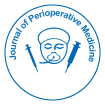
Zeitschrift für perioperative Medizin
Offener Zugang
ISSN: 2684-1290

ISSN: 2684-1290
Mohamed Zakaria Sayer Dayer
Data of 92 patients diagnosed with Borderline Ovarian Tumors (BOTs) during the period from 2010 to 2017 in the National Cancer Institute (NCI), Cairo University, Egypt were retrospectively evaluated median follow up period was 42 months. The mean age at diagnosis was 42.7 years. Histopathology was serous in 63%, mucinous in 28.3% and endometrioid in 3.3%. 65 patients (70.7%) had stage 1A disease, 17 patients had stage 1B disease (18.5%), 4 patients had stage 1C disease (4.3%), 2 patients had stage 2 disease (2.2%) and 4 patients had stage 3 disease (4.3%) at diagnosis. 49 patients (53.3%) underwent fertility sparing surgery, of which 19 patients underwent unilateral ovarian cystectomy, 5 patients underwent bilateral ovarian cystectomy, 25 underwent unilateral salpingo-oopherectomy. 43 patients (46.7%) underwent radical surgery including hysterectomy, bilateral salpingo-oopherectomy. 39 patients had micropapillary disease (42%) and 2 patients had micro invasive disease (2.2%) on histopathology. 6 patients (6.5%) had peritoneal implants of which one was invasive and five were non-invasive. Recurrence rate in the entire study group was 18.5%, 17.6% among patients underwent radical surgery and 82.4% among patients underwent fertility sparing surgery. 12 of the recurrences (70.6%) were borderline whereas 5 were invasive (29.4%). Stages 1A and 1B had significantly higher disease-free survival than other stages. Patients with micro invasion had significantly lower free disease-free survival 10.5 (9.52–11.5) vs 77.6 (70.9–84.1). Radical surgery had significantly higher FDS than fertility sparing surgery 75.8 (70.2–81.4) vs 68.5 (58.2–78.8).